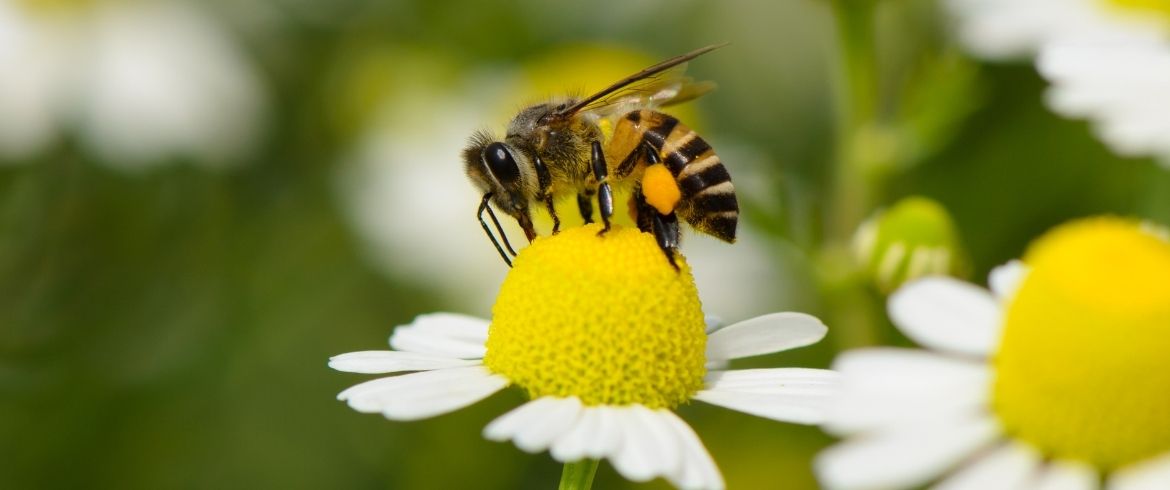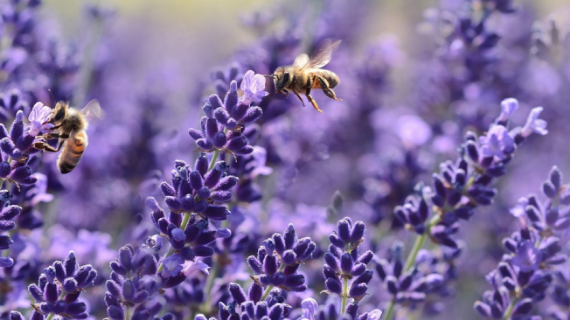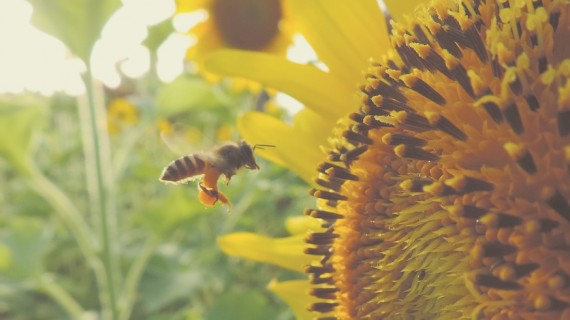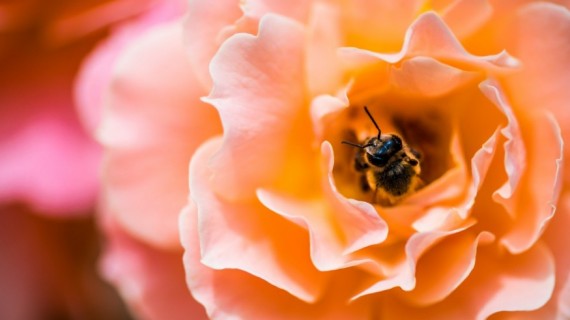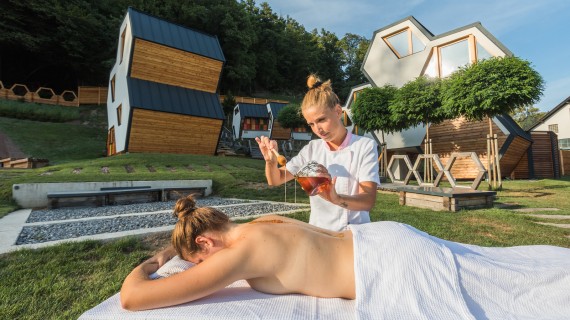“If the bee disappeared off the face of the Earth, man would only have four years left to live”. This famous quote, usually attributed to Albert Einstein, explains well how the future of the planet depends on these insects. Find out what you can do to protect them!
For some people, bees are just small insects that fly from flower to flower and produce honey. Actually, the future of the planet and the maintenance of global biodiversity depend on these small animals. Then, what would happen in a world without bees? Why are these insects so important and what can we do to preserve them? Keep reading to find out!
Why are Bees so Important?
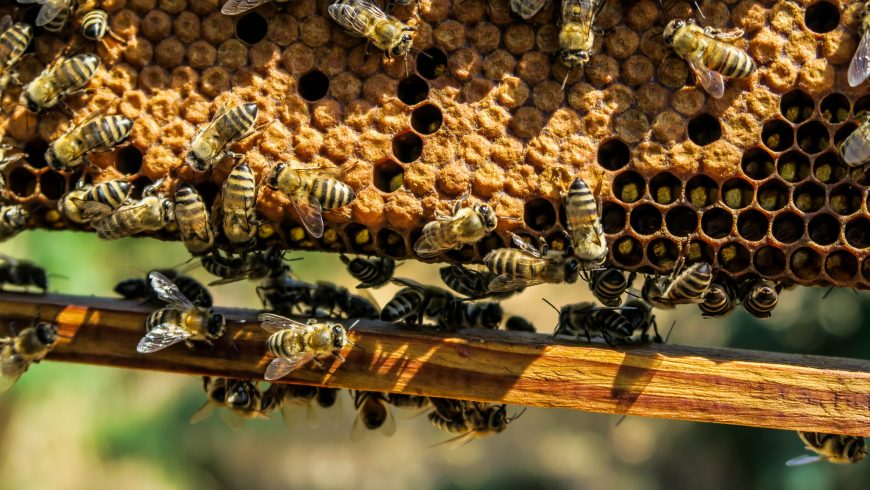
Bees are fundamental insects for us and our planet. More than 70% of the food we eat every day depends on their daily activity of pollination.
Apples, pears, chestnuts, citrus fruits, cherries, apricots, watermelons, plums, melons, almonds, zucchini, carrots, cabbages, onions, and garlic are just some of the many foods which would not exist without bees.
But not only: there are cultures that do not exclusively depend on bees for pollination, but that produce a larger harvest when these insects transport the pollen from flower to flower.
In addition, we do not have to forget the key role that bees play in the production process of new seeds of horticultural plants.
Bees are also fundamental for the pollinations of forage plants, like clover and alfalfa, essential for livestock nutrition.
Without bees, we could not even drink coffee and eat chocolate.
Bees and Biodiversity
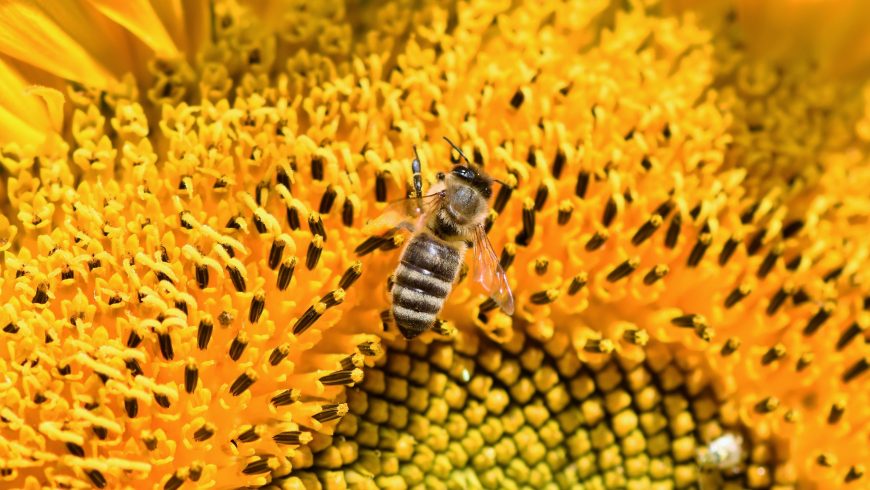
Bees are very important also for the environment. Almost 90% of wild and spontaneous plant species depend, for its reproduction and diffusion, on the pollination of bees. This role has become more central due to the progressive disappearance of other wild pollinators.
Counting that in the world there are about 350,000 wild plants and those cultivated are around 200, it is clear how the impact of these small insects is substantial and fundamental for our planet, biodiversity and ecosystem preservation.
According to the data collected by 3Bee, an agri-tech startup that develops remote monitoring systems for hives, this year a loss of more than 30% of bees was registered.
But what do we mean when we talk about biodiversity?
We can define biodiversity as the richness of life present on the Earth: plants, animals, microorganisms, fungi, biotic agents… Basically, all the variety of life that characterizes our planet.
The complex ties and the interactions between the environment and this community of organisms, which live in harmony, constitute the different ecosystems of our planet, which are deeply interconnected with each other.
Bees, therefore, as well as pollinators in general, provide a daily ecosystem regulation service, and, in this way, also a service of biodiversity preservation.
Bees Measure the Health of the Planet
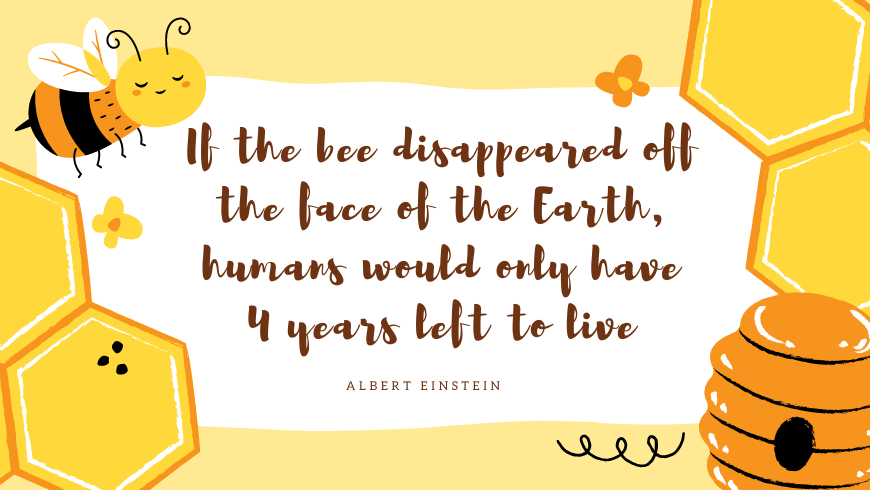
Bees are important to understand the state of health of the environment in which they live. By flying from flower to flower to collect nectar, pollen, honeydew, water, and propolis, they can also intercept any kind of pollutants, that can also lead to the death of the hive.
For this reason, an environment where bees flourish is a safe environment, where we too can live well.
Threats and Risks for Bees
However, environmental pollution it’s not the only problem that bees are facing. Climate change, depletion of natural habitats, diseases, parasites, and overuse of pesticides represent a constant and growing threat to the survival and wellbeing of bees.
Several species of wild and solitary bees are already at risk of extinction, but even the most common honey bees do not farewell.
What are the main threats to bees?
- Climate change: swings in temperature and a crazy climate have disastrous consequences on the life of bees.
- Pesticides: some pesticides used in agriculture, the neonicotinoids, besides driving the nervous system of some insects crazy, lead also bees to death
- Intensive agriculture: monocultures greatly reduce the variety of plants and flowers, which are fundamental resources for the survival of bees.
The Key Role of Beekeepers
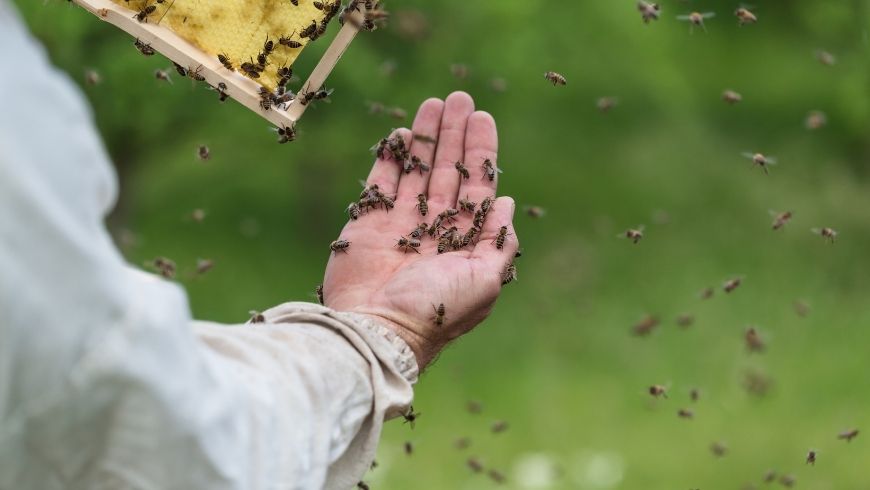
Thanks to beekeepers the situation is not catastrophic. The beekeeper, by treating the hives, is taking care also of their health and survival. The intervention of beekeepers is fundamental to protect bees from those parasites that, if not kept under control, could lead to the collapse of entire apiaries, and not only.
Beekeepers give fundamental support to their bees during the most difficult periods of the year. When, due to the crazy climate, bees can not find nourishment anymore, the beekeeper save them from certain death by providing them with support nutrition. The work of beekeepers is therefore fundamental for bees. Without them, there would be unimaginable consequences. But being a beekeeper becomes increasingly difficult.
5 Things you can Do to Protect Bee
1. Plant Flowers and Trees that Attract Bees
As we have already seen, one of the main threats to bees is the loss of biodiversity and the lack of places where they can find food. In the cities, flowers and green areas are increasingly rare. For this reason, if you have a terrace or a garden you can plant some of the favorite flowers of these insects. If instead, you have more space, planting a tree is a fantastic way to protect bees and fight climate change. In fact, bees take the majority of their nectar from flowers and trees. In addition, the resin and the leaves provide to these insects a fundamental material for building their nests. Always remember to choose local plants and flowers with various periods of blooming.
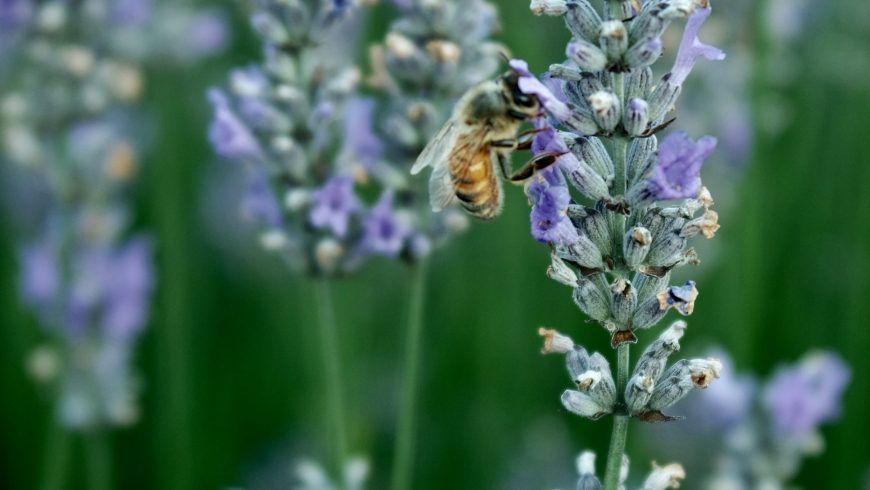
2. Support Bees and Beekeepers
Do you want to do something to protect bees? One of the most important things is sure to support beekeepers, who take care of the well-being of pollinating insects every day. For example, by buying organic honey from local beekeepers you can support them and their work. In this way you can support the virtuous beekeeping realities, which take on the well-being and the survival of bees, and therefore also of the planet.
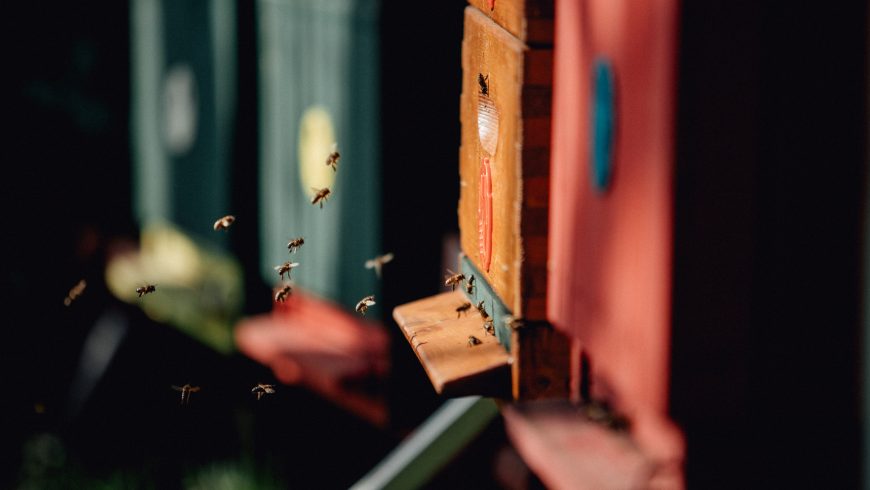
3. Cultivate the Garden in an Organic and Natural Way
If you have a garden, do not use chemicals. Follow the permaculture and the principles of organic agriculture instead. Pesticides, herbicides (in particular the neonicotinoids) and fertilizers are harmful to bees and cause their death. Use organic products and natural fertilizers, like compost or coffee grounds. In addition, you can use beneficial insects, like ladybugs, which keep the parasites away.
And then, let the grass grow. The lawn is poor in biodiversity, while a wilder garden, with grass and flowers, besides being eco-friendly, will make bees happy!
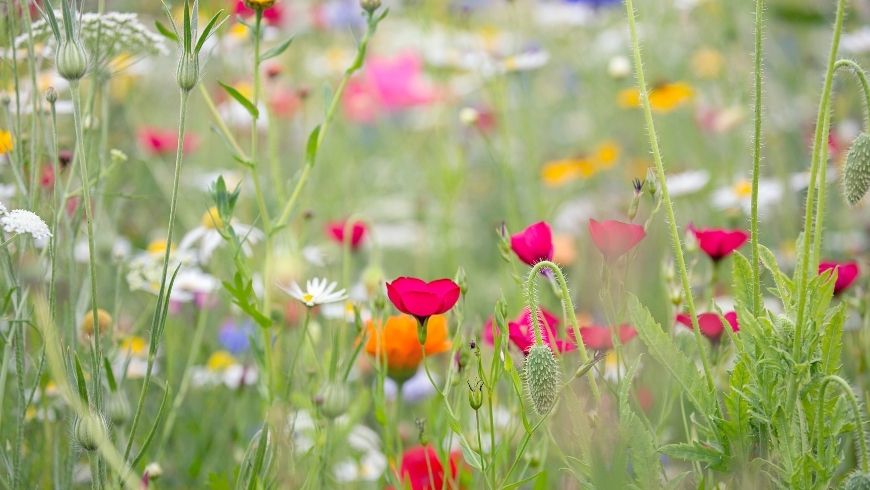
4. Choose Local, Organic, and Seasonal Food
Even if, apparently, it may seem off-topic, this tip is actually really bee-friendly. By buying organic and local food, you will support fair and sustainable supply chains. At the same time, you will not encourage industrial agriculture, which uses pesticides, chemicals, and herbicides, threatening our little friends, the bees.
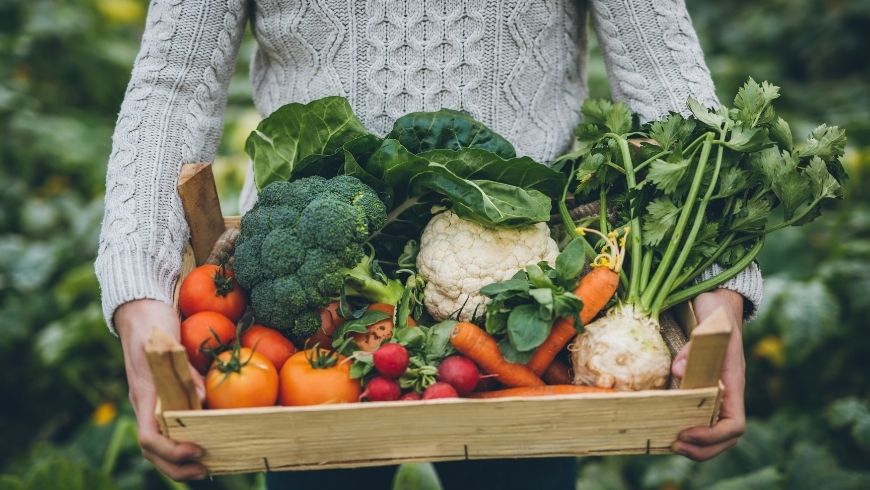
5. Build a Hotel for Bees
Honeybees are not the only existing species. There are also other species of solitary bees that are equally fundamental for pollination. In order to help these bees, which do not manage to find the right place for building a refuge, you can easily build a perfect tiny house for wild bees, and place it in your garden or balcony. In addition, you can create a small pond for thirsty bees by putting some water in a bowl and some rocks where bees can land and drink during hot days.
